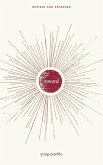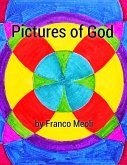The sun has set behind the Blue Ridge,
And evening with its blotting paper
lifts off the light.
Shadowy yards. Moon through the white pines
--"Landscape with Missing Overtones"
Never has Charles Wright's vision been more closely aligned with the work of the ancient Chinese painters and writers who inform his poetry than in his newest collection. Wright's short lyrics, in Charles Simic's words, "achieve a level of eloquence where the reader says to himself, if this is not wisdom, I don't know what is" (The New York Review of Books). The poems in Buffalo Yoga are pristine examples of the Tennessee poet's deft, painterly touch--"crows in a caterwaul" are "scored like black notes in the bare oak"--and his oblique, expansive, and profound interrogation of mortality, as in the title sequence, where the soul is "a rhythmical knot. / That form unties. Or reties."
And evening with its blotting paper
lifts off the light.
Shadowy yards. Moon through the white pines
--"Landscape with Missing Overtones"
Never has Charles Wright's vision been more closely aligned with the work of the ancient Chinese painters and writers who inform his poetry than in his newest collection. Wright's short lyrics, in Charles Simic's words, "achieve a level of eloquence where the reader says to himself, if this is not wisdom, I don't know what is" (The New York Review of Books). The poems in Buffalo Yoga are pristine examples of the Tennessee poet's deft, painterly touch--"crows in a caterwaul" are "scored like black notes in the bare oak"--and his oblique, expansive, and profound interrogation of mortality, as in the title sequence, where the soul is "a rhythmical knot. / That form unties. Or reties."
Dieser Download kann aus rechtlichen Gründen nur mit Rechnungsadresse in D ausgeliefert werden.









